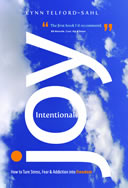What’s Your Money Type?
 Thursday, May 1, 2014 at 10:21AM
Thursday, May 1, 2014 at 10:21AM  Post a Comment
Post a Comment The love of Money is the... Money doesn’t… Rich people are…. Save for a….
I bet you could fill in all the blanks of those money clichés. It’s not money that’s evil, but the LOVE of money. We wish money grew on trees. I know many wealthy people that are anything but greedy and it’s always good to save for a rainy day.
We know the answers to these money clichés because we unconsciously pick up the cultural messages around us – many of which tell us there’s never enough money.
I think it’s safe to say that all of us have some type of money “stuff”. One way to dig deeper into understanding what is driving your money bus, so to speak, is by looking at your Money Type.*
Answer these questions to see if this Money Type is one of yours:
Do you have a tendency to avoid paying your bills? Does the thought of money make you anxious? Do you consider yourself naïve about money? Is it difficult to even know what you think or feel about your money? Perhaps though making good money, you’re still hoping prince charming will ride to the rescue?
If you answered yes to these questions then The Innocent Money Type is showing up in your relationship with money. The 8 Money Types aren’t who we are, but they help us see more clearly what we think, feel and how we act with money. The Type shows us our money strengths and weaknesses.
The Innocent Money Type appears more often with women than men, probably because women haven’t been in the work force for generations and women have been taught that they are to be taken care of. That’s different now, but it takes time to move past all that programming.
Here are 3 suggestions to move your Innocent Money Type to feeling and doing better with your money:
1) Take the FREE Money Quiz to see what other Money Types are showing up.
2) Take baby steps to make changes. Not paying bills? Start there.
3) Anxious whenever you think about money? Call a friend and ask them to talk you through the anxiety. Or, take 10 breaths (really this calms the fight/flight reaction) and then pay the bill.
WANT TO USE THIS ARTICLE IN YOUR NEWSLETTER OR ON YOUR WEB SITE?
You can, as long as you include this complete blurb with it:
Certified Money & Business Coach, Professional Speaker & author, Lynn Telford-Sahl, writes the weekly PowerUP Your Money blog for women in sales and small business. If you’re ready to PowerUP your Money, your Business & your JOY get your FREE Strategy Session with Lynn at powerupyourmoney.com
(*Money Coaching System copyright material developed by Deborah Price, Money Coaching Institute and used with permission)
 Lynn Telford-Sahl tagged
Lynn Telford-Sahl tagged  financial anxiety,
financial anxiety,  financial help for women,
financial help for women,  financial stress,
financial stress,  money challenges,
money challenges,  money help,
money help,  money stress,
money stress,  women in business
women in business













